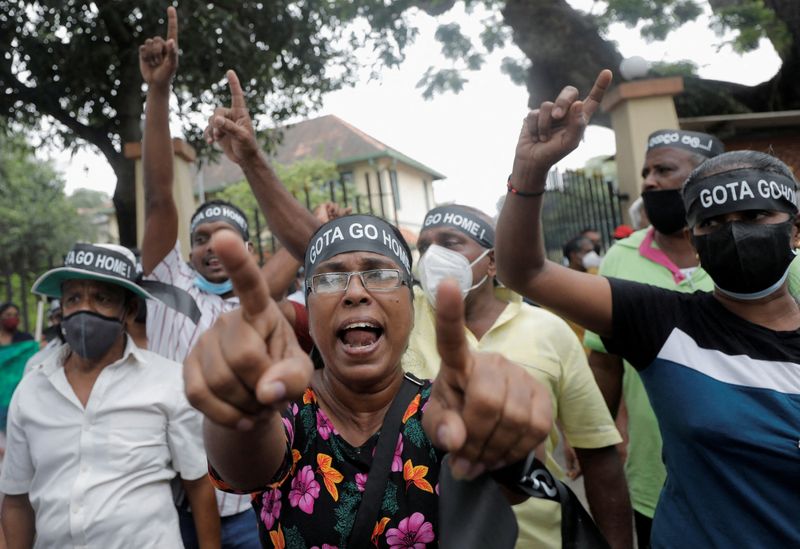By Uditha Jayasinghe
COLOMBO (Reuters) -Sri Lanka will work with the International Monetary Fund to help solve the country's economic crisis, President Gotabaya Rajapaksa said on Wednesday, setting a target of cutting its trade deficit by about 14% this year.
The Indian Ocean nation's foreign exchange reserves have fallen 70% in the past two years to about $2.31 billion, leaving it struggling to pay for essential imports, including food and fuel.
"I have decided to work with them after examining the advantages and disadvantages," Rajapaksa said in an address to the island nation of 22 million people.
"We must take action to increase our foreign exchange reserves. To this end, we have initiated discussions with international financial institutions as well as with our friendly countries regarding repayment of our loan installments."
Sri Lanka has already received financial support from China and India in the form of credit lines and currency swaps.
Rajapaksa said Sri Lanka would try to reduce the trade deficit to $7 billion this year from $8.1 billion last year. He said the government was expecting $5 billion in remittances to shore up state finances, nearly the same as last year.
If the IMF programme goes ahead, it would be Sri Lanka’s 17th financial rescue package from the global lender that generally comes with a lot of conditions https://www.imf.org/en/About/Factsheets/Sheets/2016/08/02/21/28/IMF-Conditionality, such as sticking to fiscal goals.
Analysts say the country will have to agree to a strong reform package that could include transparent energy pricing, reforming of state enterprises and new taxes to boost government revenue.
"Going to the IMF is a positive decision," said Dimantha Mathew, head of research at First Capital.

"But it is critical that debt repayment is stopped, and some level of debt restructuring is done because Sri Lanka's main problem is high levels of debt."
The president identified rising fuel costs as the most serious issue faced by his country.